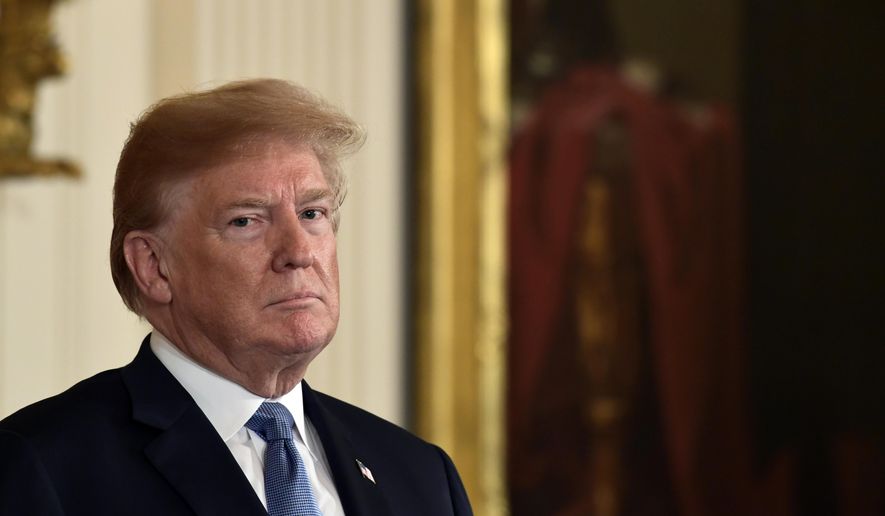President Trump said Wednesday he will use a strengthened national security review panel to stop the theft of U.S. technology by China and other countries, sidestepping another trade confrontation with Beijing by avoiding a ban on Chinese acquisitions.
Mr. Trump’s decision to work with a beefed-up Committee on Foreign Investment in the United States, or CFIUS, was widely viewed as a softer approach than Mr. Trump could have taken after vowing in May to impose “specific investment restrictions” on China.
Sen. Marco Rubio, Florida Republican, said a stronger CFIUS is “good for stopping bad deals” but may not go far enough.
“Some technologies critical to national security should NEVER be sold to or shared with #China,” Mr. Rubio tweeted. “That’s why these promised restrictions are so important & why backing off on them would be so disappointing.”
Top White House economic adviser Larry Kudlow said the option chosen by the president “is not meant to be harder or softer.”
“It is going to be very comprehensive and very effective at protecting our technological family jewels in the United States,” Mr. Kudlow said on Fox Business Network. “We are not clamping down. We are not ending foreign investment in the U.S.A. This is just a little bit of updating and modernization.”
The administration continues to pressure China on its unfair trade practices, including the forced transfer and theft of U.S. intellectual property, Mr. Kudlow said. He asserted that the next move is up to China to avoid a tariff trade war, with the U.S. set to impose tariffs on more than $450 billion worth of Chinese goods July 6.
“The president is unsatisfied with their response on trade talks and so he put out there the possibility of additional tariffs,” Mr. Kudlow told reporters. “We’re exploring that obviously, we’ll see how they respond. The ball is in their court.”
Dean Garfield, president and CEO of the Information Technology Industry Council, said the president’s move is encouraging.
“Importantly, both the House and the Senate have advanced legislation to enhance our national security without unnecessarily impeding economic growth and job creation,” Mr. Garfield said.
The administration’s move was being urged by Treasury Secretary Steven T. Mnuchin, who argued that beefing up existing law would give the president enough flexibility to target bad actors and prevent the acquisition of sensitive technology. In endorsing what legislation called the Foreign Investment Risk Review Modernization Act, Mr. Trump said it “will provide additional tools to combat the predatory investment practices that threaten our critical technology leadership, national security, and future economic prosperity.”
The measure is moving into a House-Senate conference committee. If Congress fails to pass legislation, the president said, “I will direct my administration to deploy new tools, developed under existing authorities, that will do so globally.”
Stocks rose in early trading Wednesday after the president’s announcement, but fell back into another day of losses. The Dow Jones industrial average dropped 165.52 points, or 0.68 percent. The NASDAQ fell 1.54 percent for the day.
In a statement on Wednesday, China’s commerce ministry said that officials “are playing close attention to it and will assess the potential impact on Chinese companies.”
The congressional overhaul to CFIUS would include a list of “countries of special concern” that allow the administration to review investments from those nations and gives the president more flexibility to crack down on foreign ownership of U.S. firms, officials said.
House Foreign Affairs Committee Chairman Ed Royce said the White House “is wise to set aside rumored plans for broad, blunt executive action that could have hurt American manufacturers and consumers.”
“For years, countries like China and Russia have exploited gaps in our laws to obtain sensitive technologies from U.S. businesses. This can’t continue,” said the California Republican. “An assertive, targeted response is key to protecting America’s national security and economic prosperity.”
• Dave Boyer can be reached at dboyer@washingtontimes.com.
• S.A. Miller can be reached at smiller@washingtontimes.com.




Please read our comment policy before commenting.